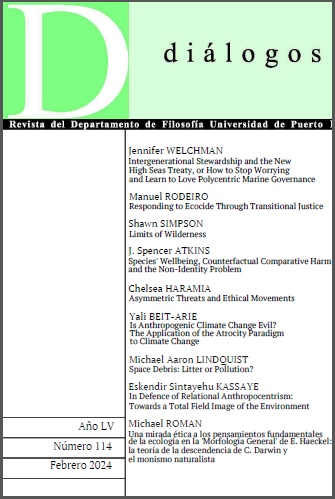Abstract
Why differentiate between evils and mere wrongs? Evils require more immediate and profound action than other wrongs. Evils must be counteracted and addressed head-on; they cannot be merely recognized without deliberate efforts to stop them. In this paper, I argue that human-caused climate change is indeed one of those evils. To argue this, I employ Claudia Card’s theory of evil, termed the Atrocity Paradigm, which defines evil as “reasonably foreseeable intolerable harm, produced by inexcusable wrongdoing.” This paper thus examines each of the three elements of the Atrocity Paradigm as it relates to climate change and shows that it meets each of the three measures. As a result, I conclude that human-caused climate change is indeed an evil rather than a mere wrong, which suggests a dire need to promptly prevent its continuation. For the purposes of this paper, the discussion of the adverse effects of human-caused climate change is narrowed to the evaluation of rising sea levels and more frequent, unpredictable, and severe storms in coastal and island areas. Anthropogenic climate change, thus, is treated and subsequently judged as a moral evil. Since it is human-caused, the effects of climate change studied in this paper are not deemed natural evils and must be prevented through human (re)action.

This work is licensed under a Creative Commons Attribution-NonCommercial 4.0 International License.

